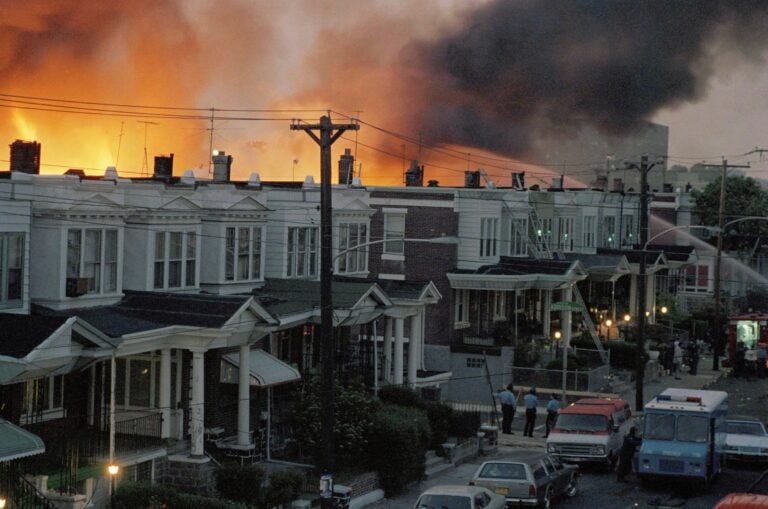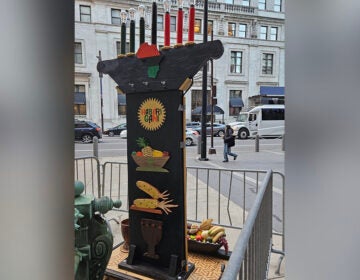Could forgiveness follow apology 35 years after the MOVE bombing?
Some leaders are pushing for Philly to formally apologize for the MOVE bombing 35 years ago. It that were to happen, what would an apology — and forgiveness — look like?
Listen 26:46
In this file photo, scores of West Philly rowhouses burn in a fire after police dropped a bomb on the MOVE headquarters on May 13, 1985. Eleven people were killed, including five children. (AP Photo, File)
The 35th anniversary of the MOVE bombing, which killed 11 members of the radical Black liberation group, has prompted some current and former leaders to call on the city of Philadelphia to formally apologize. That includes Wilson Goode Sr., who was mayor at the time and has apologized four times for the role he played.
What would it mean for the city to apologize for the MOVE bombing? And if that did happen, what could forgiveness look like?
The Why put those questions to Solomon Jones, WURD host and columnist for WHYY and The Philadelphia Inquirer, and to MOVE member Mike Africa Jr.

Hear the whole story on The Why
Interview Highlights
Solomon Jones on the bombing’s aftermath in West Philly
The bombing and the fire destroyed the neighborhood, and 61 homes in total were destroyed. The city rebuilt, but the houses that came from the rebuild were not good houses. There were many problems with those houses … And in fact, a new builder just came in maybe last year and redid those houses on that block. They’re beautiful houses now. But for years, the neighbors felt like the city had had hurt them twice, first by destroying their houses, and then by giving them houses that were not livable and they ended up having to leave.
Solomon Jones on how racism played a role
When I look at the way that racism operates, it operates through systems. And you had a system in place that day. You had a C-4 (bomb) that they had gotten from the federal government, dropped by helicopter from the state police and carried out by police who were from a local municipality. And so you had three levels of government involved in that. That’s systemic. And so the city of Philadelphia owes the people of MOVE an apology, but they also owe the rest of us an apology for engaging in that kind of brutality, that kind of militarism in a community and a community of color, which had already gone through so much prior to what happened with MOVE. MOVE, I think, was an assault on all of us carried out by a system that I think owes us an apology.
Mike Africa Jr. on why forgiveness is difficult
I think the word “forgive” is too strong for this situation, and I think the word “apology” is probably too weak for this situation. Apology without action is useless. They can never bring back the lives that were taken … And to apologize … it just feels so insulting. And there’s nothing that can be done to bring back out people, and our people have suffered so much. You know, you apologize for knocking a glass of milk off the table. That’s when you apologize. It just feels so flimsy.
Thanks to The Philadelphia Inquirer and especially to WURD radio for the use of audio in this episode.
WHYY is your source for fact-based, in-depth journalism and information. As a nonprofit organization, we rely on financial support from readers like you. Please give today.






